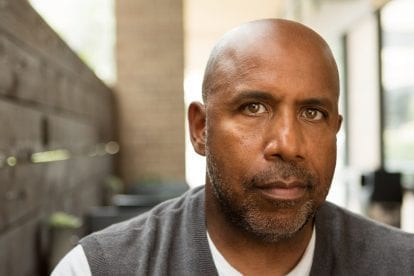
Morphine Addiction Treatment Center
Morphine is an addictive opiate pain medication that can be misused, either recreationally or medically. Like any form of opiate dependency, morphine addiction can be a difficult condition to overcome. However, with strong determination and the assistance of skilled, compassionate treatment professionals, morphine addiction can be successfully managed and ultimately subdued.
What Is Morphine Addiction?
Morphine is one of the most potent painkillers available and is often prescribed for severe pain of various types. As a drug in the opiate class, morphine is included in a number of painkillers and is used as a precursor in the manufacture of several others. It may be prescribed as pills, or in liquid form for faster pain relief through injection.
People who become addicted to morphine face a challenging path to sobriety, but with comprehensive treatment, recovery is an achievable goal.
Morphine Addiction Facts and Statistics
Morphine addiction statistics show the drug’s high potential for abuse, which is a common characteristic of all opiate painkillers. A closer look at morphine use and abuse reveals that:
- In 2016, 2.1 million people suffered from opiate use disorders in the United States, and 1.8 million suffered from addiction to pain relievers, including morphine.
- According to the American Society of Addiction Medicine, a 2016 study showed of the 20.5 million Americans 12 or older that had a substance use disorder in 2015, 2 million had a substance use disorder involving prescription pain relievers.
- In the United States, the amount of morphine consumed per capita rose from only two milligrams (mg) per person in 1980 to 29 mg/person in 2000, to a peak of 80 mg/person in 2013.
- In 2015, 24 percent of opiate overdose deaths were traceable to natural (morphine) or semi-synthetic (oxycodone) opiates (there were more than 52,000 such deaths in total).
- In one Australian survey, 38 percent of those who admitted to injecting morphine reported an addiction to the drug.
Effective World-Class Treatment for Morphine Addiction at Alta Mira
Addiction recovery at our residential morphine rehab will help you regain control of your fate and future. At Alta Mira, healing, recovery, and addressing all facets of your morphine addiction, along with any underlying co-occurring disorders, will be our top priority.
During your stay at our luxury morphine rehab, your evidence-based treatment will be supported by:
Safe, Comfortable Detox
Because morphine addiction is tenacious, medically supervised detox is an essential first step to recovery. Potentially intense withdrawal symptoms can be minimized, through carefully controlled withdrawal procedures. Once your condition has stabilized, you’ll undergo diagnostic testing and assessment before moving on to formal addiction treatment.
Individual Treatment Plans
Your comprehensive recovery plan at Alta Mira will include intensive individual, group, and family therapy. You’ll spend 30-90 days immersed in a healing-centered environment, where your efforts to change your behavior and lifestyle will receive empathic, unconditional support. If co-occurring mental health conditions have been diagnosed, they will be thoroughly addressed during the course of your treatment program.
Comprehensive Continuing Care
Your overall health and welfare will remain our primary concern. Once your formal treatment program ends, we’ll help you develop a comprehensive aftercare plan, where additional medical and therapeutic services can strengthen your motivation and reinforce your dedication to sobriety and a drug-free lifestyle.
Positive Treatment Outcomes
Alta Mira has established a working relationship with Vista Research Group. This allows us to measure your progress as you move through treatment, and gives us valuable feedback we can use to adjust your treatment plan to achieve superior results.
Signs and Symptoms of Morphine Addiction
Morphine addiction can develop with shocking rapidity, and it is this aspect of morphine use that catches people off-guard. Heavy and regular use of morphine produces multiple symptoms that indicate the presence of drug addiction, including:
- Low blood pressure
- Breathing difficulties
- Itchy skin
- Frequent drowsiness
- Equilibrium problems
- Confusion and slowed thinking processes
- Stomach problems
- Nausea and occasional vomiting
- Circulation problems
- Constipation
- Sleep apnea
- Problems urinating
As tolerance builds and morphine addiction increases in intensity, the behavior of sufferers will begin to reflect their deep-rooted drug dependency. Behavioral symptoms of chronic morphine addiction include:
- Doctor shopping, or faking illness or injury to get additional morphine prescriptions
- Purchasing black market morphine (or other opiates) to supplement legally obtained supplies
- Begging, borrowing, or stealing morphine, or the money to purchase it
- Loss of interest in personal hygiene
- Secretive behavior, isolation from family and friends
- Inability to concentrate and focus
- Appearance of needle marks and bruising (if morphine is injected)
Causes and Risk Factors of Morphine Addiction
Chronic pain is the biggest risk factor for morphine addiction since this is the primary reason people start taking the drug. There are other risk factors for opiate addiction and drug addiction in general that may come into play, including:
- Family history. This association between parental and sibling drug abuse and an elevated risk for drug dependency has some genetic elements, but the normalization of drug use in such an environment also contributes to the problem.
- Previous history of drug abuse. Recreational drug users often develop addictions to multiple substances, and morphine is frequently abused by those seeking a new and different type of euphoria.
- Mental health problems. People with undiagnosed mental health issues often use drugs and alcohol to escape from the emotional pain of their symptoms. Men and women with anxiety disorders, post-traumatic stress disorder (PTSD), or bipolar mania, for example, sometimes turn to opiates because they believe these drugs will help them relax—which they may, but only for a short time before dependency sets in.
Ultimately, it is the highly addictive nature of morphine that puts everyone who uses it at risk. If the addictive qualities of morphine are not taken seriously, things may quickly get out of hand for those who misuses it for any reason.
Morphine Addiction Withdrawal and Detox
Morphine addiction produces serious withdrawal symptoms that can derail recovery if left untreated or unmanaged. Withdrawal symptoms will appear within a few hours after the use of the drug stops and likely peak in intensity over a two-to-three-day period.
The withdrawal symptoms experienced by individuals attempting to overcome morphine addiction include:
- Agitation, restlessness
- Nausea and vomiting
- Joint and muscle pain
- Heavy sweating
- Anxiety, panic attacks
- Runny nose, sneezing
- Chills, feelings of being feverish
- Diarrhea and stomach cramps
- Racing heart and shallow breathing
- Insomnia
- Intense cravings
Detox for morphine addiction at our luxury morphine rehab will include careful 24-hour medical monitoring by doctors, nurses, and addiction specialists. Any urgent physical or emotional problems will be treated as necessary, while withdrawal symptoms will be managed to minimize their intensity and reduce the suffering they cause.
Begin Your Recovery Journey Today
866-922-1350Knowing When It's Time for Morphine Addiction Treatment
Getting help for morphine addiction is vital. But making that first step toward this important and potentially life-transforming move can be challenging for anyone who has tried to manage addiction on their own. Residential treatment for morphine abuse is most effective because it allows an individual to focus on treatment for an extended period of time while learning the necessary skills for returning home and avoiding a relapse. Morphine addiction treatment is tailored to each individual and typically includes:
- Detox
- One-on-one behavioral therapy
- Group therapy and peer support
- Educational programs
- Family therapy
- Experiential and holistic therapies
- Intensive workshops
- Fitness/recreation
- Relaxation strategies and stress management
- Learning how to avoid relapses
Relapse prevention is an important part of treatment and includes learning what triggers prescription drug use, how to avoid triggers, lifestyle changes, and learning and using healthy coping strategies.
We understand that in order for morphine rehab to be successful, we must listen closely and truly understand your needs, aspirations, personal history, and treatment goals. All members of our care team align closely with you so that you feel safe, respected, and ready to do your work. With this approach, Alta Mira co-creates a profound healing experience with you so you can achieve your recovery goals and reclaim your life.
How to Help a Loved One Get Treatment for Morphine Addiction
When your loved one comes to Alta Mira, they will finally have a chance to be free from the debilitating effects of their morphine addiction.
While you can have an influence on your loved one’s decision to seek treatment, an individual struggling with morphine abuse must take ultimate responsibility for their own recovery. Your support and encouragement may be what will finally convince them to seek help for their struggles with morphine.
- The Challenge. Your loved one may deny they have a problem, even when its negative impact on their life seems obvious. Of course, their chances of recovery are better if they can get help early before their addiction runs out of control, and that is far more likely to happen if you actively encourage them to seek treatment. Your influence can be profound when it is backed by love and a refusal to let their initial denial create a tragic outcome.
- Get Help for Yourself. If your child or partner is struggling with morphine abuse, the toll it takes on you can be immense. To support your mental and emotional health, you should consider joining a support group for family members of people who’ve been abusing drugs or alcohol. Nar-Anon sponsors such groups in most large communities and in many smaller ones as well.
- Consider an Interventionist. Trying to break through the walls of denial erected by men and women suffering from drug addiction can be frustrating. To help with this process, you might want to consider hiring a professional interventionist. When the time comes to confront a loved one about their reckless and self-destructive behavior, an organized intervention led by a trained expert can increase your chances of success.
To learn more about interventions and about how to arrange one, please contact our admissions specialists at Alta Mira today.
How Our Luxury Morphine Treatment Center Transforms Lives
Residential treatment for morphine addiction is the best option for you or your loved one. Our luxury morphine rehab is designed for a safe detox and successful recovery from addiction. During treatment, we’ll provide you with an array of tools to guide your morphine recovery, such as a personalized treatment plan, holistic and alternative therapies, group therapy, family therapy, life skills training, and help with exercise and nutrition. During your stay at Alta Mira, you’ll have an individualized treatment plan tailored to your specific needs. This will include comprehensive services for any co-occurring conditions that might be complicating or supporting your morphine addiction.
Our Transformational Morphine Addiction Treatment Program
Your first 30 days of treatment at Alta Mira is referred to as your Detox, Stabilization, Assessment period, which begins with private, medically supervised detox. During this time, our detox specialists will keep you safe and secure, monitored 24/7, as you rest in the privacy of your own room.
You can also expect:
- Weekly meetings with a psychiatrist
- Weekly meetings with a medical doctor
- Neuropsychological testing and advanced psychological testing
- Orientation to our recovery fundamentals and self-regulation skills development
- In-depth family engagement and the option for loved ones to attend multiple 4-day family programs
- Introduction to therapy groups
Following 30 days of stabilization, clients move on to the next phase of their recovery process at Alta Mira, which we call our Transformational Program. Key elements of our complete 90-day transformational morphine rehab program include:
- Three individual intensive psychotherapy sessions per week
- Weekly meetings with a medical doctor
- Participation in advanced workshops to support introspection, foundational change toward recovery, and relapse prevention
- Expanded neuropsychological assessment and continued weekly psychiatrist meetings inform tailored treatment adjustments and a refined individualized clinical approach
- Practice and integration of recovery principles and self-regulation skills and continued family work to support improved individual outcomes
- Intensive Workshops
The Courage to Change
Overcoming your morphine addiction will require dedication and a real belief in the possibility of change. Your arrival at Alta Mira will signal the serious nature of your pledge to defeat your drug addiction, and we will be there every step of the way to support your efforts to achieve that life-saving milestone.
Better Drug Treatment Outcomes
Recovery from morphine addiction requires time and attention. In our 90-day residential addiction treatment program, you’ll have all the time you need to truly heal, and the personalized attention you require and deserve from our skilled and compassionate addiction treatment specialists. Our 90-day program is especially recommended if you have co-occurring mental health conditions that also require intensive treatment services.
To ensure your recovery is sustainable, you’ll have substantial support in your aftercare program as well. The best outcomes are guaranteed by an intensive approach, and that is what we specialize in at Alta Mira.
Working and Healing Together
When you come to Alta Mira for help with your morphine addiction, be prepared for an experience that will change your life. You’ll form healing partnerships with your therapists, your peers, and loved ones who participate in your family therapy sessions. During your time at Alta Mira, you’ll learn a lot about yourself and your true capabilities as you embrace your newfound sobriety with enthusiasm and a sense of endless possibility.
Reclaim Your Life at Our Private Morphine Addiction Treatment Center Today
We believe individuals are best able to focus on their recovery when immersed in a secure, serene, healing setting. That’s why we provide comfortable surroundings while maintaining the most advanced and sophisticated morphine rehab program in Northern California. Clients can expect compassionate care from our best-in-class morphine addiction specialists.
Seeking a helping hand to guide you through these difficult times is not an easy decision. Our caring and experienced team at Alta Mira can help guide you through the next steps toward achieving lasting recovery.
Don’t let morphine control your life. To begin your life-changing transformation, contact us today.
Morphine Addiction FAQs
For medical professionals, diagnosing morphine addiction is a relatively straightforward process, as long as patients are honest about their drug use and their inability to control it.
Morphine addiction may be diagnosed if:
- Morphine has been consumed more heavily and for longer periods than expected
- Multiple attempts to quit using morphine have failed
- Securing and using morphine has become a time-consuming process
- Cravings are experienced regularly
- Employment, educational, and family responsibilities are frequently neglected
- Morphine use is implicated in relationship problems
- Occupational, social, and/or cherished recreational activities are no longer a priority
- Morphine use has led to hazardous behaviors, accidents, or exposure to danger
- Physical or psychological problems have developed in connection with morphine use
- Morphine tolerance has grown dramatically
- Withdrawal symptoms are experienced when morphine is not consumed on schedule
Six or more of these symptoms must be present for a severe morphine addiction to be diagnosed, but someone who exhibits as few as two symptoms may be diagnosed with a mild form of dependency.
Should morphine addiction remain undiagnosed for weeks or months, the risk of overdose—and possible death—can rise exponentially.
The signs of morphine overdose include:
- Extreme dizziness
- Confusion and disorientation
- Cold, clammy skin
- Constricted pupils
- Loss of normal muscle tension
- Cardiac symptoms
- Dangerously low blood pressure and a weak pulse
- Overwhelming drowsiness, to the point of unresponsiveness
- Shallow breathing and respiratory distress
- Loss of consciousness
If an overdose victim loses consciousness before anything is done, it may already be too late to get help. When summoned to provide aid, emergency medical personnel will often administer the drug naloxone, which can halt the neural binding of morphine (or any other dangerous opiate) and stop an overdose from progressing.
Many lives have been saved by naloxone, but it can only work if medical attention is sought promptly when an overdose is suspected.





